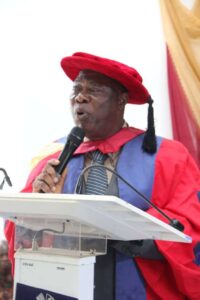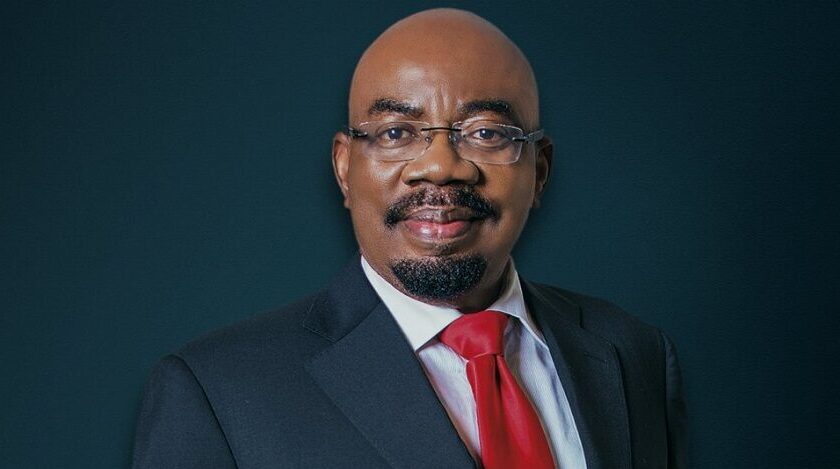A renowned Professor of Energy and Power Engineering at the Department of Mechanical Engineering, Ambrose Alli University, Ekpoma, Engineer Osadolor Orlando Odia, has called on the President Bola Ahmed Tinubu-led Federal Government to as a matter of urgency declare a complete state of emergency on power generation and distribution in Nigeria to address the nation’s energy deficiency.
Prof. Odia, who made the call while delivering the Ambrose Alli University’s 108th inaugural lecture entitled, “Exploration And Exploitation of Energy Resources: Implication For Man and The Earth”, said no nation can attain the requisite development without electricity or with a high degree of energy deficiency as currently experienced by Nigeria.
Prof. Odia said “Nigeria Electricity Power (Power) availability is, to say the least, abysmal, as Nigeria tops the list of counties with the longest annual outage duration in Africa with 4,600hours. This is 3,200 hours more than the next country on the list, Niger Republic.
“Nigeria is ranked as the world’s worst country with regards to access to electricity with about 90million (46%) of the total population not connected to the grid. Where the grid is available, which corresponds to 54% of the total population, power is only available for between 4 and 15 hours per week.

“With only about 3GW availability, Nigerian power production falls far short of demand, which is the primary constraint to the nation’s economic growth, Nigeria’s power situation is truly miserable compared to the huge population and the desired rate of development. With the population now in the excess of 200million and with the present level of determination and desire for development, Nigeria needs a generation capacity of at least 60,000MW and an available capacity of at least 40,000MW in the immediate, with a solid arrangement to double the generation and available capacities before 2035.”
The University Don highlighted that the national energy challenge has not gone beyond redemption, but certain steps must be taken with all the required precisions. He asserted that beyond declaring a state of emergency in the power sector as prescribed, the Federal Government must consider a “repeal of the privatization of the distribution sector and introduce prepaid metering system and monitor it through remote modular connectivity”, insisting that the privatization exercise is inimical to rural development.
The professor of Energy and Power Engineering urged the government to “Decentralize transmission by carving the nation into between 6 and 10 units and loop the units with gear switches to reduce the very rampant outages due to system failures and invest massively in generation among other things.”
The chairman of the occasion and acting Vice Chancellor of the University, Prof. Asomwan Sonnie Adagbonyin, while declaring open the 108th Inaugural Lecture, the 7th from the Faculty of Engineering and Technology, and the 3rd in the newly introduced bi-monthly series, said the lecture could not have come at any other better time than now that Nigeria is craving for industrial development powered by constant energy.
Prof Adagbonyin pointed out that the lecture addressed national development and growth in the face of energy deficiency while also making recommendations on the ways out of the crisis. “The exploitation, exploration, conversion, and use of energy are not without consequences which impact heavily on humans and the environment in several ways. We can only imagine how, if left unchecked, humans and the environment can be seriously threatened”, the VC AAU added.
The Acting Vice Chancellor, who decorated the inaugural lecturer after his delivery, announced that the University is enjoying a smooth run of the 2022/2023 academic session which would soon give way to the 2023/2024 academic session, with fresh students coming into residence on Tuesday April 2nd, 2024. He applauded the cooperation and support of staff and students in this regard.





